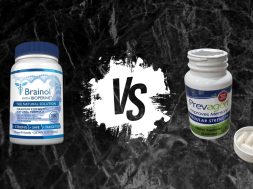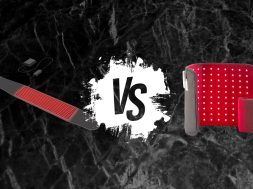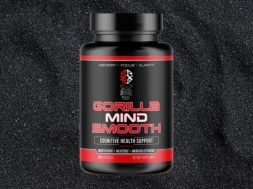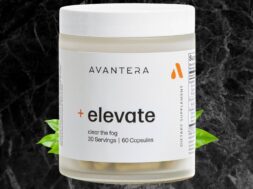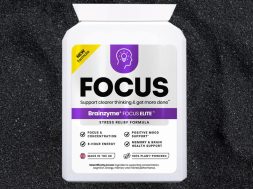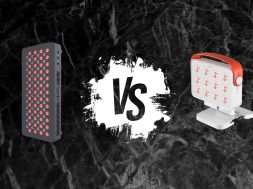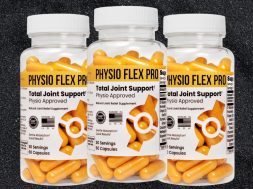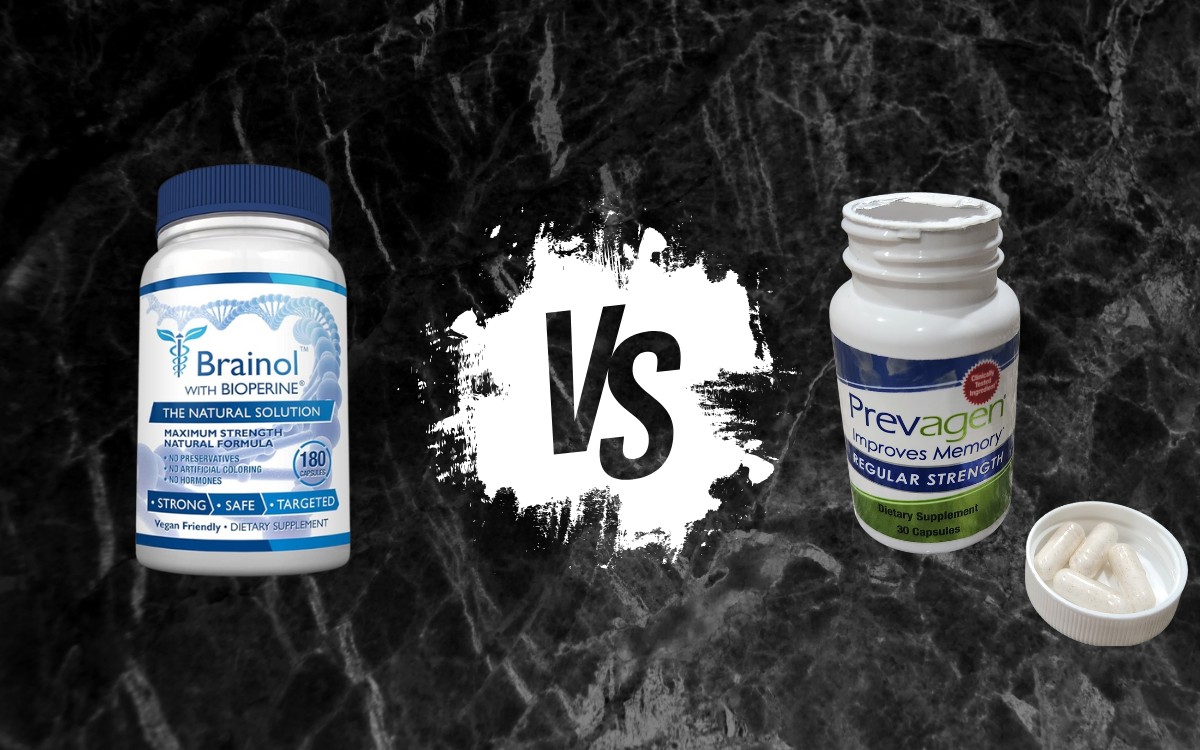
Cognitive supplements are everywhere these days, and each one claims sharper focus, faster recall, or a better mood. But as someone who juggles early training sessions, coaching, content creation, and parenting, I’ve learned that most nootropics promise more than they deliver.
Two of the most recognizable names in this space are Brainol and Prevagen. Both are marketed as daily brain-boosting formulas but take completely different approaches.
Brainol packs more than a dozen ingredients into a single capsule, trying to cover every angle, while Prevagen goes the opposite route and uses just one main ingredient.
I’ve tested both products separately and given them fair trials under real-world conditions. Each had its moments, but also clear limitations.
Quick Verdict
Both Brainol and Prevagen miss the mark, just in opposite ways. Brainol tries to do too much — it lists a dozen ingredients, but most are underdosed or poorly absorbed, leading to a mild short-term lift at best.
Prevagen, meanwhile, relies on a single unproven compound called apoaequorin, and the research behind it is shaky at best.
If you had to pick, Brainol feels slightly more active thanks to its caffeine–theanine combo, but its effects fade fast. Prevagen might appeal to older users, but it’s unlikely to move the needle for anyone expecting sharper focus or better memory.
For genuine, lasting brain performance, Mind Lab Pro is the better investment. It’s cleaner, properly dosed, and actually backed by independent research, making it the smarter choice for anyone who wants results they can feel.
Winner
Based on my experience with each nootropic supplement, neither Brainol nor Prevagen hold a light to Mind Lab Pro.
Mind Lab Pro has 3 clinical studies backing its formula and is a non-stimulant nootropric to enhance short and long-term brain function.
What Is Brainol?
Brainol is an all-in-one nootropic from Consumer Health, designed to support focus, memory, mood, and mental energy. Each bottle contains 60 capsules (a one-month supply), and the formula blends vitamins, amino acids, herbal extracts, and a few advanced compounds like phosphatidylserine and huperzine A.
On paper, it looks complete, but once you dig into the dosages, the picture changes. Many of the right names are here, but in amounts too low to match what clinical studies use.
It’s like trying to fuel a race car on a few drops of gas: technically there, but not enough to make a difference.
That said, Brainol deserves credit for transparency. There are no proprietary blends, meaning you can see exactly what’s inside. The formula also doubles as a high-dose B-complex, which may help people who are low in certain nutrients.
Still, between the underdosed nootropics, a weak magnesium form, and risky ingredients like St. John’s Wort and high-dose huperzine A, the overall design feels more scattered than strategic.
You can read my Brainol review for my experience taking this nootropic supplement.
Pros
- Transparent label with no proprietary blends
- Phosphatidylserine is reasonably dosed
- Guarana + L-theanine offers a smooth focus lift
- High-dose B-complex may help those low in nutrients
- Backed by a 60-day money-back guarantee
Cons
- Many key ingredients are severely underdosed (Bacopa, tyrosine, ALCAR, choline)
- Magnesium oxide has poor absorption
- St. John’s Wort poses drug-interaction risks
- Huperzine A dose is too high for long-term use
- Effects fade quickly; little memory support
What Is Prevagen?
Prevagen is one of the most heavily advertised brain supplements on the market, the one you’ve probably seen in pharmacy aisles or TV commercials claiming to “improve memory.”
It’s made by Quincy Bioscience and stands out for using a single active ingredient called apoaequorin, a calcium-binding protein originally discovered in a species of glowing jellyfish.
The theory is that apoaequorin helps regulate calcium levels in brain cells, which might support memory and slow age-related decline. In practice, though, the evidence is thin.
The only significant study showing benefit was conducted by the company itself and has been widely criticized for poor methodology and weak statistical outcomes. Independent research hasn’t confirmed those findings.
Prevagen comes in several strengths — Regular (10 mg), Extra (20 mg), and Professional (40 mg) — but all rely on the same basic mechanism. Because it lacks other well-established nootropics like Bacopa, citicoline, or theanine, its potential benefits are limited mainly to memory, not focus, energy, or overall brain performance.
You can read my Prevagen review for my experience taking this nootropic supplement.
Pros
- Simple, single-ingredient formula
- Generally well-tolerated with few side effects
- Easy to find in most pharmacies and online
- Comes in multiple strengths for dosing flexibility
Cons
- Based on weak and disputed research
- Effects are minimal or absent for most users
- No support for focus, energy, or mood
- Expensive for a single-ingredient supplement
- Marketed with claims not strongly backed by science
Brainol vs Prevagen – Main Differences
Benefits
Brainol and Prevagen aim for the same outcome — better cognitive function — but they go about it in completely different ways. Brainol takes a shotgun approach, combining a long list of vitamins, amino acids, and herbal extracts to try and cover all areas: focus, memory, mood, and energy.
Prevagen, by contrast, takes a sniper shot with one ingredient and one claim — memory support through its jellyfish protein, apoaequorin.
In practice, Brainol’s formula produces mild short-term focus improvements, mostly from its guarana + L-theanine pairing. It provides a gentle lift in alertness without the jittery crash of caffeine-heavy products.
For me, this translated into smoother morning work sessions and slightly better concentration for a couple of hours. The phosphatidylserine and huperzine A may contribute to some mental clarity, but the benefits are modest and fade fast.
Prevagen feels even subtler or, to be honest, mostly absent. The potential benefit of apoaequorin is highly speculative, and unless you’re dealing with noticeable age-related decline, you’re unlikely to feel much of anything.
Its biggest strength is its simplicity and safety profile; you won’t get overstimulated, but you also won’t get much cognitive improvement.
Ingredients
Brainol includes over a dozen ingredients ranging from magnesium and B vitamins to herbal nootropics like Bacopa, St. John’s Wort, and Phosphatidylserine.
The problem isn’t what’s in it, but how little of each. Bacopa at 50 mg, tyrosine at 200 mg, and acetyl-L-carnitine at 100 mg are far below clinically effective levels.
Magnesium is in its least absorbable form (oxide), and St. John’s Wort raises potential drug interactions.
The one bright spot is phosphatidylserine at 100 mg, a dose that’s at least in the effective range, and a decent theanine-caffeine pairing from guarana. But overall, Brainol feels like a checklist of underpowered ingredients rather than a synergistic formula.
Prevagen, on the other hand, couldn’t be more different. It relies solely on apoaequorin, a 10–40 mg dose depending on the version you buy.
The idea of taking a jellyfish protein supporting brain calcium regulation is novel, but there’s no solid independent evidence that apoaequorin even crosses the blood-brain barrier, let alone improves memory.
The simplicity makes it safe and predictable, but also limits its potential impact.
Short vs Long-Term Effects
Brainol provides some short-term stimulation but little lasting benefit. The guarana + L-theanine pairing is its most noticeable feature, giving you a mild, smooth focus boost within the first hour.
It’s enough to make writing, reading, or desk work feel more dialed in for a few hours, but that’s about it.
Once the light caffeine effect fades, so do the benefits. Because most of its ingredients are underdosed (like Bacopa, tyrosine, and acetyl-L-carnitine), there’s not much potential for cumulative or long-term cognitive improvement. Even after several weeks, you won’t feel any compounding effects
Prevagen is designed for long-term use and marketed toward age-related memory support. The company claims benefits appear after 90 days, though the supporting research is weak and largely conducted in-house.
In my one-month trial, there was no discernible effect — no sharper recall, no difference in daily focus, no change in mental clarity. Theoretically, longer use might show subtle improvements for older users, but for healthy adults, the impact is negligible.
Clinical Research
Prevagen has one main human study often cited in its advertising, but the details matter. Conducted by the manufacturer, Quincy Bioscience, it involved 218 adults aged 40–91 who self-reported memory issues.
After 90 days of taking 10 mg of apoaequorin daily, the study claimed mild improvements in verbal learning and recall.
The problems are easy to spot. It wasn’t independently replicated, the effects were statistically weak, and the participants’ “memory problems” weren’t clinically verified but simply self-reported.
Even the Federal Trade Commission and the New York Attorney General have challenged Quincy Bioscience over its advertising claims, arguing that the evidence doesn’t support the marketed benefits.
Despite aggressive marketing, no major independent clinical trial has ever confirmed apoaequorin’s effectiveness.
Brainol, on the other hand, has no direct clinical trials of its full formula. However, many of its individual ingredients have established research behind them, at least when properly dosed.
Bacopa monnieri, L-theanine, phosphatidylserine, and tyrosine all have data showing improvements in memory, focus, or mental resilience.
The issue is that Brainol’s doses are a fraction of what those studies use, so the clinical backing doesn’t translate to real-world effectiveness here.
Side Effects
Brainol contains several active compounds that can cause side effects, especially with daily use. The biggest concern is Huperzine A, which is dosed at double the upper range typically used in research at 400 mcg.
Prolonged use at this level can lead to headaches, insomnia, or vivid dreams due to its strong effect on acetylcholine metabolism.
Another issue is St. John’s Wort, which can interfere with many common medications, including antidepressants, hormonal birth control, and blood thinners.
The high-dose B vitamins might cause mild flushing or tingling in sensitive users, and the caffeine from guarana, while modest, can disrupt sleep if taken later in the day.
Overall, Brainol is safe for most healthy adults when used occasionally, but it’s not something I’d recommend for long-term, daily use.
Prevagen, in contrast, is about as simple and low-risk as a supplement gets. With only one active ingredient, it avoids the typical nootropic issues like overstimulation or sleep disturbance.
The company’s study reported only a few mild headaches among participants, and I didn’t experience any negative effects during my month-long trial. That said, the absence of side effects goes hand-in-hand with its lack of noticeable benefits.
Availability
Availability is the only real win for Prevagen.
Brainol is sold primarily through the official Consumer Health website, where you can buy single bottles or discounted multi-bottle bundles.
Occasionally, it pops up on Amazon, but the company pushes customers toward direct orders to take advantage of its 60-day money-back guarantee.
Shipping is available in the U.S. and to select international markets, though delivery times can vary. Because it’s not a retail-shelf product, you won’t find it in big pharmacy chains or supermarkets — it’s clearly aimed at online shoppers already familiar with the nootropic space.
Prevagen, on the other hand, is everywhere. It’s one of the few brain supplements you can walk into a Walgreens, CVS, or Walmart and buy right off the shelf.
It’s also available through major online retailers like Amazon and iHerb, making it far more accessible to the general public.
This wide distribution is one reason it’s so well known, not necessarily because it works better, but because it’s marketed harder and placed where older consumers already shop for vitamins and supplements.
Still, availability doesn’t equal effectiveness. Easy access is nice, but it doesn’t make up for weak ingredients or limited results.
User Reviews
User feedback paints a pretty consistent picture for both products with mixed results, modest effects, and plenty of skepticism.
Brainol earns middling ratings across most platforms. On the company’s website, reviews lean positive, with users mentioning clearer focus and smoother energy in the mornings.
However, on Amazon and third-party sites, the tone shifts: many buyers report little to no change even after finishing a full bottle.
The most common praise is for the “clean” focus boost from the guarana–theanine combo, while the main complaints center around underwhelming results, lighter sleep, or mild headaches.
Prevagen enjoys massive brand recognition and tens of thousands of reviews online, largely because of its retail dominance and TV advertising.
The pattern is similar: about half the users claim some mild memory improvement after a couple of months, while the other half feel nothing at all.
Interestingly, even many of the five-star reviews come from older users who “hope it’s helping,” rather than those who notice clear results. Critics point to the high price and lack of tangible effects.
Lawsuits
Prevagen has faced multiple lawsuits and regulatory actions over its marketing claims. The Federal Trade Commission (FTC) and the New York Attorney General jointly sued Quincy Bioscience, alleging false advertising and deceptive marketing practices.
The case centered on the company’s claims that Prevagen “improves memory” and “supports healthy brain function,” which the FTC argued were not backed by credible scientific evidence.
Although the case has gone through several rounds of appeals, the allegations remain a stain on the brand’s reputation. The court filings revealed that Quincy’s own internal data didn’t support the strong improvements promoted in their ads.
Essentially, the few memory gains observed in their study were statistically insignificant, and independent experts agreed that the results didn’t justify the claims being made to consumers.
Brainol, in contrast, hasn’t been involved in any public legal disputes or regulatory actions. Consumer Health, the company behind it, operates a number of wellness supplement brands and generally maintains a clean record.
Price
Here’s how Brainol and Prevagen compare on cost and value:
| Product | Supply | Price | Cost per Serving | Notes |
|---|---|---|---|---|
| Brainol | 60 capsules (1 month) | $59.95 | ~$2.00 | Bulk discounts drop to ~$1.00/serving; includes 60-day money-back guarantee |
| Prevagen Regular | 30 capsules (10 mg) | $39.95 | $1.33 | Entry-level version; minimal effect |
| Prevagen Extra | 30 capsules (20 mg) | $59.95 | $2.00 | Slightly stronger, but still single-ingredient |
| Prevagen Professional | 30 capsules (40 mg) | $89.95 | $3.00 | Most expensive; limited evidence |
While Prevagen offers more price tiers, it’s poor value for a one-ingredient formula with weak science. Brainol costs about the same but gives a broader mix of nutrients and mild short-term effects.
That said, if you’re investing $60–$70 a month, products like Mind Lab Pro, Noocube, and Nooceptin remain much better options in this range that are fully dosed, clinically tested, and worth the price.
My Experience With Brainol and Prevagen
I tested Brainol and Prevagen at different times, each for about a month, to see how they fit into my normal schedule involving early morning training sessions, long writing blocks, and the usual chaos of family life.
Both had moments of potential, but neither delivered enough consistency to earn a permanent spot in my routine.
With Brainol, I noticed subtle but real short-term effects. About 45 minutes after taking it, there was a slight lift in focus and energy — enough to get into a solid work rhythm without the restless buzz I sometimes get from a can of Monster. That smoother alertness came from the guarana–L-theanine combo, which does work well together.
The downside was how quickly the effect faded. By early afternoon, I was back to baseline, and there was no cumulative improvement week to week.
Memory, learning, and mood stayed about the same, likely because the core ingredients like Bacopa, tyrosine, and carnitine were underdosed.
On the plus side, Brainol was easy to tolerate. I didn’t experience headaches or nausea, only lighter sleep when I took it later in the day.
Prevagen, in contrast, was almost uneventful. I used the Regular Strength version, which is the one most commonly tested in its clinical research.
After 30 days, I didn’t feel any noticeable difference — no better recall, no sharper thinking, no mental energy shift. It was basically like taking a multivitamin with no immediate effect.
To be fair, Prevagen’s marketing emphasizes long-term memory support for older adults, not performance enhancement for younger or active people.
Even so, given its price and bold claims, I expected at least a subtle change. Instead, it was one of the few supplements I’ve tested that felt completely neutral — neither positive nor negative.
Should You Take Brainol or Prevagen?
If you’re trying to choose between Brainol and Prevagen, it really depends on what you expect from a nootropic and how much you’re willing to settle for.
Choose Brainol if you just want a light, short-term productivity aid. It delivers a mild boost in focus from the guarana–theanine pairing and doubles as a high-dose B-complex if your diet’s lacking in certain nutrients.
For occasional use it’s fine, but don’t expect major improvements in memory, learning, or long-term brain health. The formula simply isn’t dosed high enough to produce lasting change.
Choose Prevagen only if you’re curious about it and want something extremely simple and stimulant-free. It’s easy to find and safe for most users, but the evidence behind apoaequorin just isn’t convincing.
If you’re middle-aged or older and want to experiment with memory support, you could give it a few months, but go in with modest expectations. For active adults or anyone looking to improve mental clarity, Prevagen offers almost nothing noticeable.
In reality, both products miss the mark for anyone serious about cognitive performance.
That’s where Mind Lab Pro steps in. It combines clinically tested ingredients like citicoline, Bacopa, and Lion’s Mane at research-backed doses, and it’s been independently verified to improve cognitive performance in healthy adults.
It’s more expensive than most mainstream options, but it actually feels like it works, providing sharper thinking, better recall, and smoother focus over time.
If you’re only going to invest in one nootropic, skip both Brainol and Prevagen and go straight for something that’s proven to deliver real results.
Mind Lab Pro
Mind Lab Pro Nootropic Brain Supplement
Non-Stimulant Nootropic For Instant Brain Boost
Boost brain power & reduce cognitive decline.
CHECK CURRENT DEALS